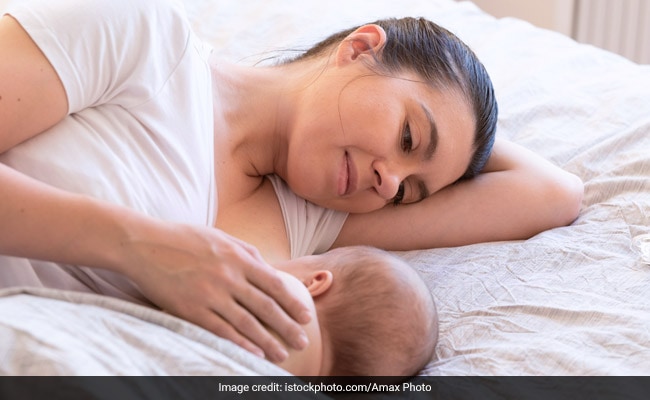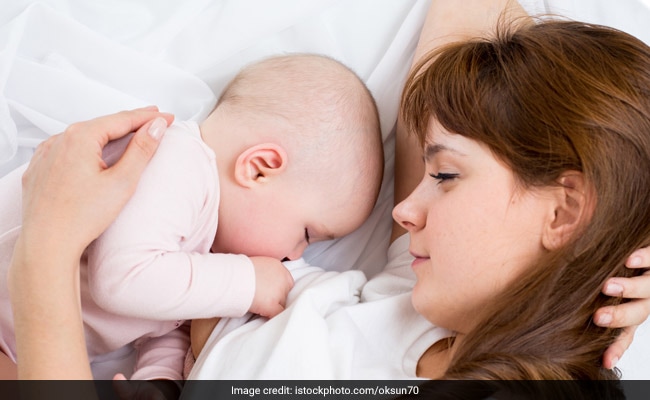Mon 01 August 2022:
Every year, from August 1 to 7, the world observes World Breastfeeding Week promote breastfeeding and enhance infant health. The week was originally observed by about 70 countries, but today 170 nations do so.
This day honours the Innocenti Declaration, which was signed in August 1990 by representatives of the WHO, UNICEF, and other organisations to save, encourage, and promote breastfeeding. According to the WHO, breastfed children are healthier and smarter. Furthermore, compared to those who aren’t, their odds of being overweight, obese, and suspectable of diabetes are considerably lower, ANI reported.

Step Up for Breastfeeding: Educate and Support is this year’s World Breastfeeding Week theme.
As per WHO statistics, two out of every three babies are not breastfed. Thus, it becomes more important to mark this day.
According to WHO, mothers should begin breastfeeding within an hour after childbirth and then exclusively breastfeed the baby for the first six months of life. Then, take up complementary feeding with continued breastfeeding for up to two years or as long as the mother and the baby desire. This process ensures the baby gets optimal nutrition for proper growth and development.
As per many, breast milk is the best meal for the newborn since it includes antibodies that help to avoid many common paediatric illnesses. Not only this, as per certain research, breastfeeding lowers the risk of type-2 diabetes, rheumatoid arthritis, cardiovascular disease, and high blood pressure in women. Breastfeeding is considered to be a crucial element in a baby’s healthy growth and development.

Benefits of breastfeeding for the baby
Breast milk is an easy-to-digest, easy-to-absorb tailored food that has the right blend of several nutritional and immunological compounds, such as protein, fats, vitamins, minerals, antibodies, immune cells, hormones, beneficial bacteria, and oligosaccharides that:
- Offers optimum nourishment to support the baby’s growth and development
- Boosts immunity by protecting the baby against infections and illnesses, which lowers infant mortality and morbidity
- Augments digestive health by supporting the growth of beneficial bacteria in the gut
- Establishes healthy eating practices by letting the baby acquaint to different tastes and flavors via breast milk
- Builds trust between mother and baby that makes the baby feel safe and at ease
Besides all these, breast milk composition alters as per the baby’s nutritional needs. It means if a baby is born premature, milk composition varies to meet their needs.

Benefits of breastfeeding for the mother
Like it does for babies, breastfeeding benefits mothers as well.
- Speedy healing and recovery after childbirth
- Faster postpartum weight loss due to calorie burnout that happens during breast milk production
- Lower risk of certain cancers, such as ovarian and breast cancers
- Lowers the risk of bone diseases, such as osteoporosis and arthritis
- Lower risk of postpartum depression by promoting emotional satisfaction
Besides these, skin-to-skin contact during breastfeeding helps both the mother and the baby.
According to Dr. Neharika Malhotra, consultant, gynaecology, increased breastfeeding, could prevent 20,000 maternal deaths annually from breast cancer as per the WHO estimates. She further added, “Therefore, we need to promote the importance of more family-friendly policies to protect and support breastfeeding. More would-be mothers should be subjected to counselling so that the practice of breastfeeding should be inculcated right from the beginning.”

Conclusion
Breastfeeding is a beautiful experience for the mother and the baby. For babies, breastfeeding is the source of nourishment that builds their immunity and promotes proper growth and development. And for the mothers, it’s a way to bond with their babies and enjoy specific health benefits themselves. Since breastfeeding is mutually beneficial, it’s imperative that societies support mothers to breastfeed at least for the first six months of an infant’s life.
According to the World Health Assembly, there should be a 50 per cent increase in the rate of exclusive breastfeeding worldwide by 2025.
SOURCE: INDEPENDENT PRESS AND NEWS AGENCIES
___________________________________________________________________________________________________________________________________________
FOLLOW INDEPENDENT PRESS:
TWITTER (CLICK HERE)
https://twitter.com/IpIndependent
FACEBOOK (CLICK HERE)
https://web.facebook.com/ipindependent
Think your friends would be interested? Share this story!





